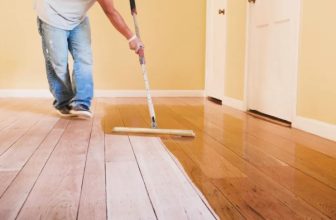
As more people continue to show interest in transforming the appearance of their property by having a resin-bound driveway installed, the number of questions about the resin-bound driveway installation process has increased. This is why in this article, we have come up with a few helpful answers to some of the frequently asked questions about resin-bound driveway installations.
What exactly is a resin-bound surface?
A resin-bound surface is a driveway solution that is permeable and made from a mixture of clear resin binder with either recycled glass, stones, marbles or other high-quality natural aggregates. The mixture is usually trowelled onto a prepared sub-base, smoothed over and allowed to cure before use.
Is a resin-bound driveway limited to residential properties alone?
The answer to this question is ‘No’. A resin-bound driveway isn’t limited to only residential properties. Many owners of commercial venues like retail outlets, councils, car dealerships, sporting venues, holiday parks and leisure centres have begun to look towards using resin-bound to transform their walkways, paths, car parks and outdoor spots.
What is the resin-bound driveway installation process?
A resin-bound driveway installation is a multi-step process that starts with surface preparation. The surface to which the resin mixture will be applied needs to be flat and free of any gaps or holes. If there are any gaps or holes present, the base is patched up to ensure that the resin-bound driveway is smooth. All dirt and loose stones can be removed with a pressure jet to ensure that the resin settles and bonds well to the surface. After surface preparation, a primer is usually applied to give the surface a strong bond.
The aggregates (stones, marbles or glass) used to make the resin are cleaned and mixed with the resin before the mixture is evenly layered onto the prepped surface with a trowel (a thickness of 15mm is recommended) and allowed to set.
Should the temperature be considered when installing a resin-bound driveway?
Yes! The ambient temperature range when installing a resin-bound surface should be between is 5°c – 30°C. In a situation where the relative humidity is above 78% or the temperature is below 5°C, no installation should be carried out.
How long will a new resin-bound driveway take to set?
The resin-bound driveway installation guidelines recommend waiting for at least 8 hours before any pedestrian movement on a newly installed resin-bound driveway. As for the parking of vehicles, waiting for at least 24 hours is recommended (72 hours for heavier vehicles).
How much does a resin-bound driveway installation cost?
Depending on the size, quality of materials, and location, the average cost of installing a grey resin driveway is between £40 – £ 120 per square metre.
Can I DIY a resin-bound driveway installation?
Although a DIY resin installation might seem like a fun and cost-saving project, it is not. Resin-bound driveway installations require appropriate skills and equipment that only a professional driveway installation company can provide.
Conclusion
As long as they are installed correctly, resin-bound driveways are a great investment if you are looking for quality, cost-effectiveness and longevity. Hopefully, the answers provided above can answer some of the questions you may have about their installation process.




